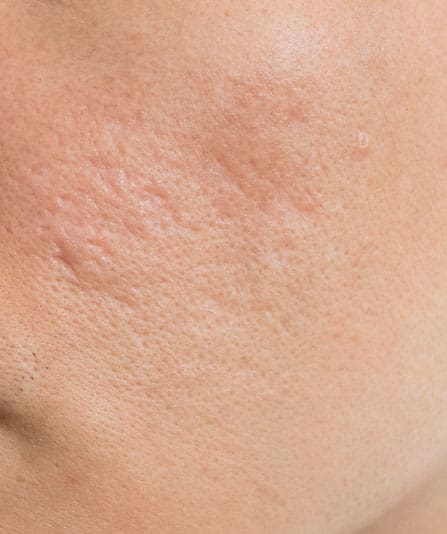Scars by Mr Ioannis Goutos
Acne Scarring Treatment

Acne is a common skin condition that affects most people at some point in their lives. Unfortunately, if acne is extensive, poorly managed or if there are cystic lesions, individuals can become at risk of developing long-term scarring.
The inflammation and spots, in particular cysts, caused by acne can act as injury or insult to the skin which, in a similar way to a wound or laceration, can produce scarring during the healing process. These scars may look pigmented (i.e darker), take to form of hypertrophic or keloid scars (i.e raised) or atrophic (i.e pitted) scars. Scarring can occur anywhere on the body where there was active acne, most commonly the face, but also affecting the chest and back.
Mr Ioannis Goutos is an expert plastic surgeon who specializes in the management and care of scars. He is highly qualified to discuss, plan and perform a wide array of procedures that can improve an individual’s understanding of their scars, as well as the appearance of their scarring in line with their aesthetic goals.
Book your consultation today
Book nowAbout this condition
Although anyone can get acne scarring, there are several factors that can increase your risk of developing scars with acne including:
- Having family or personal history of abnormal scarring
- Infection of the acne whilst it is active
- Presence of cysts (spots that are deeper and pus-filled, similar to boils)
- Popping or picking at the spots
- Inadequate management or treatment of active acne
Once all of the active acne has resolved, the resultant acne scarring can have significant impacts of an individual’s self-esteem and skin confidence. There are a number of different procedures and techniques that can improve the quality and appearance of acne scarring. These include:
- Injections of either steroids or 5-fluorouracil. These are most suitable for hypertrophic or keloid scars and may help to flatten the scarring and reduce any itching or pain associated with the scars.
- Needling techniques aim to rejuvenate the skin by stimulating the production of collagen. This can help reduce the appearance of atrophic or pitted looking scars.
- Filler or fat injections can replace collagen in small areas of depressed scarring.
- Laser treatments can reduce redness and pigmentation in scarring and also improve the texture of the skin.
- Surgical removal for selected scars
- Other modalities including platelet rich plasma (PRP) can also prove beneficial in improving the general appearance of acne scarring.
It is important to seek a consultation with a highly qualified plastic surgeon to explore the characteristics of your current scarring, skin type, and your treatment goals. Individualised and tailored treatment plans can then be designed to achieve these goals. This may involve repeated treatments with the same technique, or a combination of procedures to produce the best outcomes.
The optimal treatment for acne scarring is prevention in the first place with good management of acne when it starts. General skin care is also important, including adequate hydration and protection from direct sunlight using appropriate clothing and applying SPF protection (at least SPF30).

Testimonials
Mr Goutos is delighted to share some of his patient and peer feedback on their experiences of his services.











